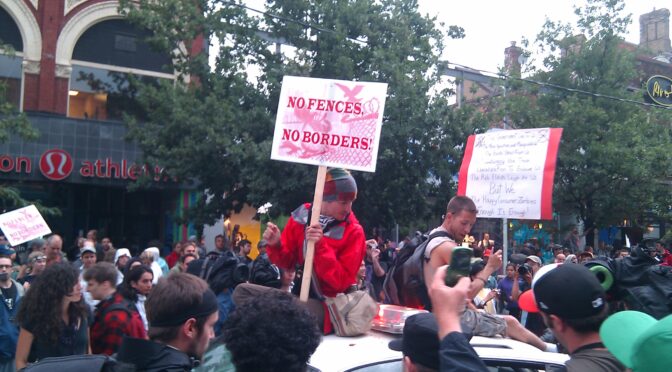Join Jesse Hirsh as he engages in a fascinating conversation with David Fingrut, delving into the vibrant history of the media collective and its impact on Toronto's cultural landscape in the 1990s. They explore how this unique social network fostered collaboration among diverse individuals, bridging various political ideologies while promoting creative projects that challenged mainstream narratives. Fingrut shares insights on the collective's ethos, encapsulated in the slogan "don't get caught," highlighting the interplay between activism, media, and public space. The discussion also touches on the evolution of grassroots movements, drawing parallels to contemporary events like Reclaim the Streets, which sought to reclaim urban spaces through creative protest. As they navigate these themes, Hirsh and Fingrut reflect on the ongoing relevance of these movements in today's socio-political climate, emphasizing the importance of community organizing and the fight for justice.
Engaging in a rich conversation about the evolution of media and community activism, Jesse Hirsh and David Fingrut reflect on the legacy of the Media Collective, a group that flourished in Toronto during the late 1990s. Fingrut describes the Media Collective as a vibrant social network that convened in person to collaborate on creative projects, often infused with political undertones. The conversation reveals how the collective fostered a sense of community among diverse individuals who were passionate about media-making and social change, utilizing discussions and monthly meetings to share ideas and launch various initiatives. Hirsh emphasizes the cultural significance of the collective during a period marked by the rise of the internet and alternative media, suggesting that it represented a crucial turning point in how communities engaged with media production.
Delving deeper into the socio-political context of their experiences, the hosts discuss how the Media Collective intersected with movements like Reclaim the Streets, which sought to reclaim public space through creative protests. Fingrut recalls the playful yet poignant tactics employed, such as street theater and spontaneous gatherings, which contrasted sharply with conventional forms of activism. The dialogue highlights the necessity of physical presence and community organizing, especially when juxtaposed against the backdrop of today's digital landscape, where online activism often overshadows physical mobilization. As they navigate through the significance of these grassroots movements, both Hirsh and Fingrut underscore a collective yearning for a return to tangible, community-driven activism in the face of modern challenges.
The episode culminates with a discussion on the future of activism and the role of media in shaping public discourse. The two ponder the implications of the current political climate, particularly as it relates to the rise of authoritarianism and the erosion of public spaces. They reflect on the lessons learned from the Media Collective and how those principles can inform contemporary movements seeking to reclaim agency in a world increasingly dominated by corporate interests. Hirsh and Fingrut's dialogue serves as a poignant reminder of the power of collective action, the importance of community, and the ongoing struggle for a more just and equitable society, urging listeners to reconsider their roles within these narratives of resistance and resilience.


